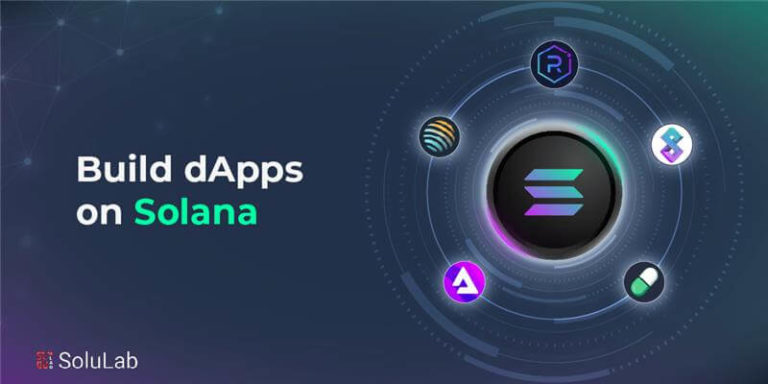
Zero-knowledge proof (ZKP) is a cryptographic technique that allows one party (the prover) to prove to another party (the verifier) that they know a secret value without revealing the secret value itself. ZKPs have a wide range of potential applications, including in blockchain technology.
What is Zero-Knowledge Proof?
A zero-knowledge proof is a cryptographic method that allows one party (the prover) to prove to another party (the verifier) that they know a secret value without revealing the secret value itself. The prover can convince the verifier that they know the secret value without giving the verifier any information about the secret value.
Read Our Blog Post: Top 10 Layer 1 Blockchains in 2024
ZKPs are based on the idea of commitments and challenges. A commitment is a cryptographic object that binds the prover to a value without revealing the value itself. A challenge is a random value that the verifier sends to the prover. The prover then uses the secret value and the challenge to generate a response. The verifier can then verify the response to ensure that the prover knows the secret value.
Benefits of Zero-Knowledge Proof in Blockchain

Zero-knowledge proofs (ZKPs) are a fascinating cryptographic concept with numerous practical applications across various fields. These proofs allow one party (the prover) to demonstrate to another party (the verifier) that they possess specific knowledge or data without revealing the actual knowledge or data itself. Here are some benefits of zero-knowledge proof blockchain:
-
Privacy and Security
ZKPs enable the verification of information without exposing sensitive data. This is particularly valuable in privacy-sensitive applications such as identity verification, authentication, and financial transactions. They reduce the risk of data breaches or leaks since the actual data remains hidden.
Read Our Blog: Blockchain Security: Best Practices Every Developer Should Know
-
Authentication and Access Control
ZKPs can be used for secure authentication and access control systems. Users can prove their identity or credentials without disclosing personal information. Access to confidential systems or resources can be granted without revealing any sensitive data.
-
Blockchain and Cryptocurrencies
ZKPs are crucial in enhancing the privacy and scalability of blockchain networks like Ethereum. They enable private transactions, confidential smart contracts, and efficient verification of blockchain data. They can also be used to improve the consensus mechanisms, reduce network congestion, and lowering transaction costs.
-
Secure Data Sharing
In scenarios where parties need to share sensitive information, ZKPs can facilitate secure data sharing. For example, two parties can prove that their data sets have common elements without revealing those elements.
-
Compliance and Auditing
ZKPs can be used to prove compliance with certain rules or regulations without disclosing sensitive data. This is beneficial in industries like finance and healthcare, where regulatory compliance is crucial.
-
Password-less Authentication
ZKPs can replace traditional password-based authentication methods, making systems more secure and user-friendly. Users can prove their identity without remembering and inputting passwords.
Read Also: Blockchain Verification Process: Explained
-
Efficient Data Verification
ZKPs can reduce computational overhead in data verification processes. They allow for efficient proof of data integrity without the need for lengthy data transfers.
-
Trustless Systems
In decentralized systems, ZKPs can establish trust without relying on a central authority. This is essential in applications like decentralized finance (DeFi) and supply chain management.
-
Intellectual Property Protection
ZKPs can be used to prove ownership or authorship of digital content or intellectual property without revealing the content itself. This can help protect creators’ rights.
-
Reducing Information Asymmetry
In various negotiations or transactions, ZKPs can help reduce information asymmetry by allowing parties to verify claims or assets without disclosing all relevant details.
Applications of Zero-Knowledge Proof in Blockchain

Here are some specific examples of how ZKPs are being used in blockchain today:
- Privacy-preserving Transactions: Zero-knowledge proof blockchain is being used to develop privacy-preserving transaction protocols for public blockchains such as Ethereum and Bitcoin. These protocols allow users to make transactions without revealing their identities or transaction amounts.
- Scalable Bridges: ZKPs are being used to develop scalable bridges between different blockchains. These bridges allow users to transfer assets between blockchains without having to trust a centralized custodian.
- Decentralized Identity: ZKPs are being used to develop decentralized identity solutions. These solutions allow users to control their own identities and prove their identity to others without revealing any sensitive information.
- Proof-of-stake Consensus: ZKPs are being used to develop new proof-of-stake consensus algorithms that are more efficient and secure than existing algorithms.
Challenges of Implementing ZKPs in Blockchain
One of the biggest challenges of implementing Zero-knowledge proof blockchain technology is that they can be computationally expensive. However, there has been significant progress in recent years in developing more efficient ZKP algorithms.
There are a number of challenges that need to be addressed before ZKPs can be widely implemented in blockchain technology. Some of the key challenges include:
Read Our Blog Post: Building Trust in a Digital World: The Power of Blockchain Development
- Computational Complexity: ZKPs can be computationally expensive to generate and verify. This can be a challenge for blockchains that need to process a large number of transactions per second.
- Implementation Complexity: ZKPs can be complex to implement, both in terms of the cryptographic algorithms and the underlying blockchain infrastructure. This can be a challenge for developers who are not familiar with ZKP technology.
- Lack of Standardization: There is currently no standard ZKP protocol. This can make it difficult to develop and integrate ZKPs into different blockchain platforms.
- Security Concerns: While ZKPs are a powerful cryptographic technique, there are still some security concerns that need to be addressed. For example, if a ZKP protocol is not correctly implemented, it could be vulnerable to attack.
Despite these challenges, there has been significant progress in recent years in developing more efficient and easier-to-implement ZKP algorithms. Additionally, a number of blockchain platforms are working on integrating ZKPs into their protocols. As these efforts continue, we can expect to see ZKPs play an increasingly important role in blockchain technology in the years to come.
Here are some ways to address the challenges of implementing Zero-knowledge proof blockchain technology:
- Develop more efficient ZKP algorithms: Researchers are actively working on developing more efficient ZKP algorithms. As these algorithms become more efficient, ZKPs will become more practical for use in blockchain applications.
- Develop better ZKP libraries and tools: There is a need for better ZKP libraries and tools that make it easier for developers to build blockchain applications that use ZKPs. This would help to reduce the implementation complexity of ZKPs.
Read Also: What are the Benefits of Using Digital Identity with Blockchain in the Future?
- Conduct thorough security audits of ZKP-based applications: Before deploying ZKP-based applications, it is important to conduct thorough security audits to identify and fix any potential security vulnerabilities. This would help to improve the security of ZKP-based applications.
Overall, the future of ZKPs in blockchain is promising. As ZKP technology continues to develop, we can expect to see more and more blockchain applications that use ZKPs to improve their privacy, scalability, and security.
Future of Zero-Knowledge Proof in Blockchain

The future of Zero-Knowledge Proofs (ZKPs) in blockchain technology looks promising and is expected to play a significant role in addressing several critical challenges and advancing the capabilities of blockchain networks. Here are some key aspects of the future of Zero-knowledge proof blockchain technology:
- Privacy Enhancements: ZKPs will continue to be instrumental in improving the privacy of blockchain transactions. Technologies like Confidential Transactions and Confidential Assets, which utilize ZKPs, will gain wider adoption to hide transaction amounts and asset types.
Check Out Our Blog: Top 10 Blockchain Development Companies in 2024
- Scalability: ZKPs can help address the scalability issues faced by many blockchain networks. Through techniques like zk-Rollups, they can enable more efficient and secure off-chain computation and data storage, reducing the burden on the main blockchain.
- Interoperability: ZKPs can be used to facilitate cross-chain communication and interoperability. This will allow assets and data to move seamlessly between different blockchain platforms while maintaining privacy and security.
- Privacy Coins: Privacy-focused cryptocurrencies, which leverage ZKPs, will continue to evolve. These coins provide enhanced privacy features that make it difficult to trace transactions, offering users a greater level of financial privacy.
- Smart Contracts and DApps: ZKPs can be used to enhance the privacy and efficiency of smart contracts and decentralized applications (DApps). This will enable a wider range of use cases, including in the fields of decentralized finance (DeFi) and supply chain management.
- Regulatory Compliance: ZKPs can assist in maintaining regulatory compliance by allowing for selective disclosure. Users can prove compliance with certain regulations without revealing their entire transaction history or financial details.
- Layer 2 Solutions: Layer 2 scaling solutions like Optimistic Rollups and zk-Rollups will continue to gain traction in blockchain ecosystem protocols. These solutions rely on ZKPs to batch and validate transactions off-chain before submitting a concise proof to the main blockchain, greatly improving efficiency.
- Reduced Transaction Costs: ZKPs can help reduce transaction costs on blockchain networks. This is especially important as blockchain adoption grows, and congestion and high fees become more common.
- Improved User Experience: As blockchain systems become more user-friendly, ZKPs will play a role in simplifying complex cryptographic operations, making blockchain technology more accessible to the general public.
- Research and Innovation: Cryptographic researchers will continue to explore new types of ZKPs and ways to optimize their efficiency and security. This ongoing research will lead to the development of even more advanced ZKP techniques.
Conclusion
ZKPs are a powerful cryptographic technique with a wide range of potential applications in blockchain technology. ZKPs are already being used to develop new privacy-preserving transaction protocols, scalable bridges, decentralized identity solutions, and proof-of-stake consensus algorithms.
As ZKP algorithms become more efficient and easier to implement, we can expect to see even more innovative and disruptive applications of ZKPs in blockchain in the years to come. It’s important to note that while ZKPs offer significant benefits, their adoption and integration into blockchain ecosystems will depend on the specific needs and goals of individual projects and networks. As the technology matures and use cases continue to emerge, ZKPs are likely to become a standard tool in the blockchain toolbox, helping to overcome some of the most pressing challenges in the space.
Zero-Knowledge Proof architecture is a very modern solution and to take full advantage of it, you will need to work with a top blockchain development agency who can help you out with the technology and development aspects of ZKP.
SoluLab is a blockchain development agency that has been one of the top players in this industry for quite some time now. We are a team of experienced blockchain developers who specialize in creating custom solutions that meet the unique needs of your business. Contact SoluLab now to discuss how we can assist you in building a trusted and secure blockchain solution for your business.
FAQs
1. What is a Zero-Knowledge Proof (ZKP)?
A Zero-Knowledge Proof is a cryptographic technique that allows one party (the prover) to demonstrate to another party (the verifier) that they possess certain knowledge or data without revealing the actual knowledge or data itself. It proves the truth of a statement without revealing any specific details.
2. Why are ZKPs important in blockchain technology?
ZKPs are crucial in blockchain technology for enhancing privacy, scalability, and security. They enable private transactions, efficient off-chain computation, and secure verification of data without exposing sensitive information.
3. How do ZKPs improve privacy in blockchain transactions?
ZKPs enable confidential transactions by proving that a transaction is valid without revealing the transaction amount or other private details. This ensures that blockchain transactions can be both secure and private.
4. What is the role of ZKPs in the scalability of blockchain networks?
ZKPs can be used in Layer 2 scaling solutions, such as zk-Rollups, to process transactions off-chain and submit succinct proofs to the main blockchain. This greatly reduces congestion and enhances scalability while maintaining security.
5. Can ZKPs be used for cross-chain interoperability?
Yes, ZKPs can facilitate cross-chain interoperability by enabling the verification of data or assets on one blockchain without revealing sensitive information. This paves the way for seamless asset transfers between different blockchain networks.
6. How can ZKPs enhance the security of smart contracts and DApps?
ZKPs can improve the security of smart contracts and DApps by allowing for private computation and data verification. This reduces the risk of exposing sensitive information and vulnerabilities in decentralized applications.
7. Are ZKPs completely foolproof and secure?
While ZKPs are considered highly secure when implemented correctly, their security depends on the underlying cryptographic assumptions and the quality of implementation. Careful design and peer review are essential to ensure their robustness.
8. Do ZKPs have regulatory implications in blockchain technology?
Yes, ZKPs may have regulatory implications as they enhance privacy in financial transactions. Regulators may need to strike a balance between privacy and transparency, especially in the context of Anti-Money Laundering (AML) and Know Your Customer (KYC) requirements.






